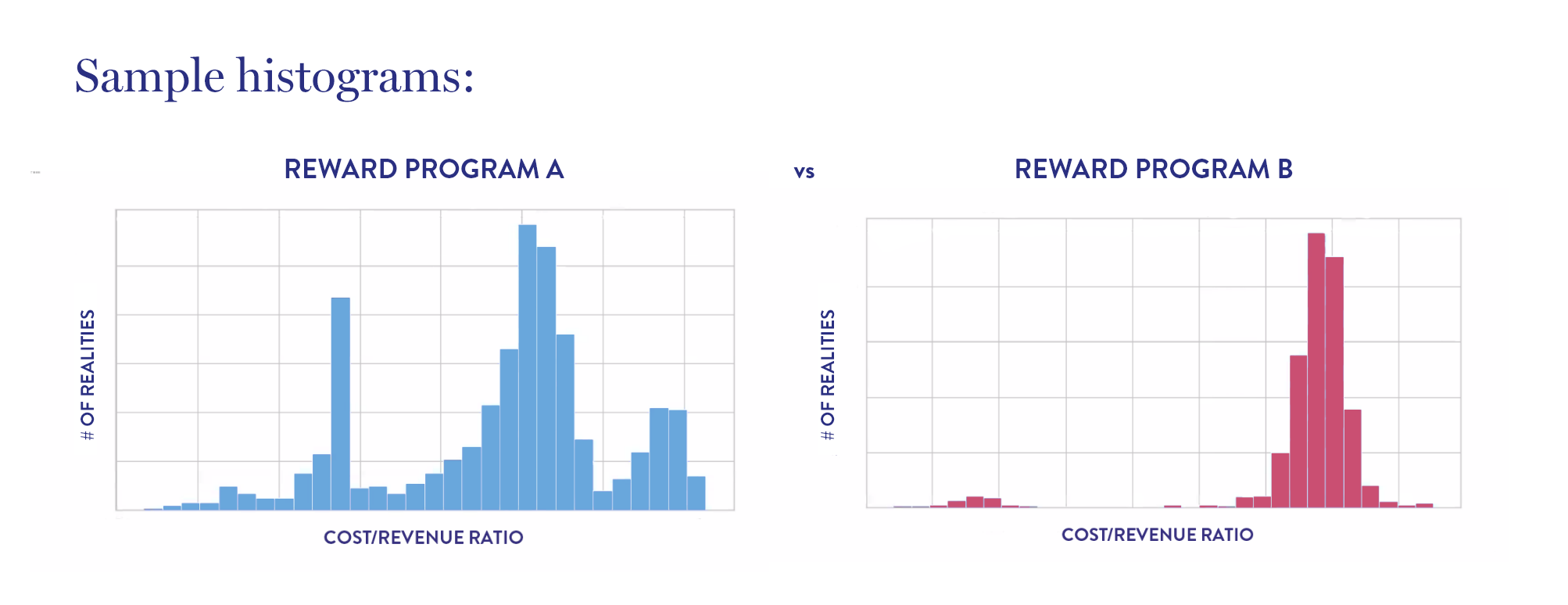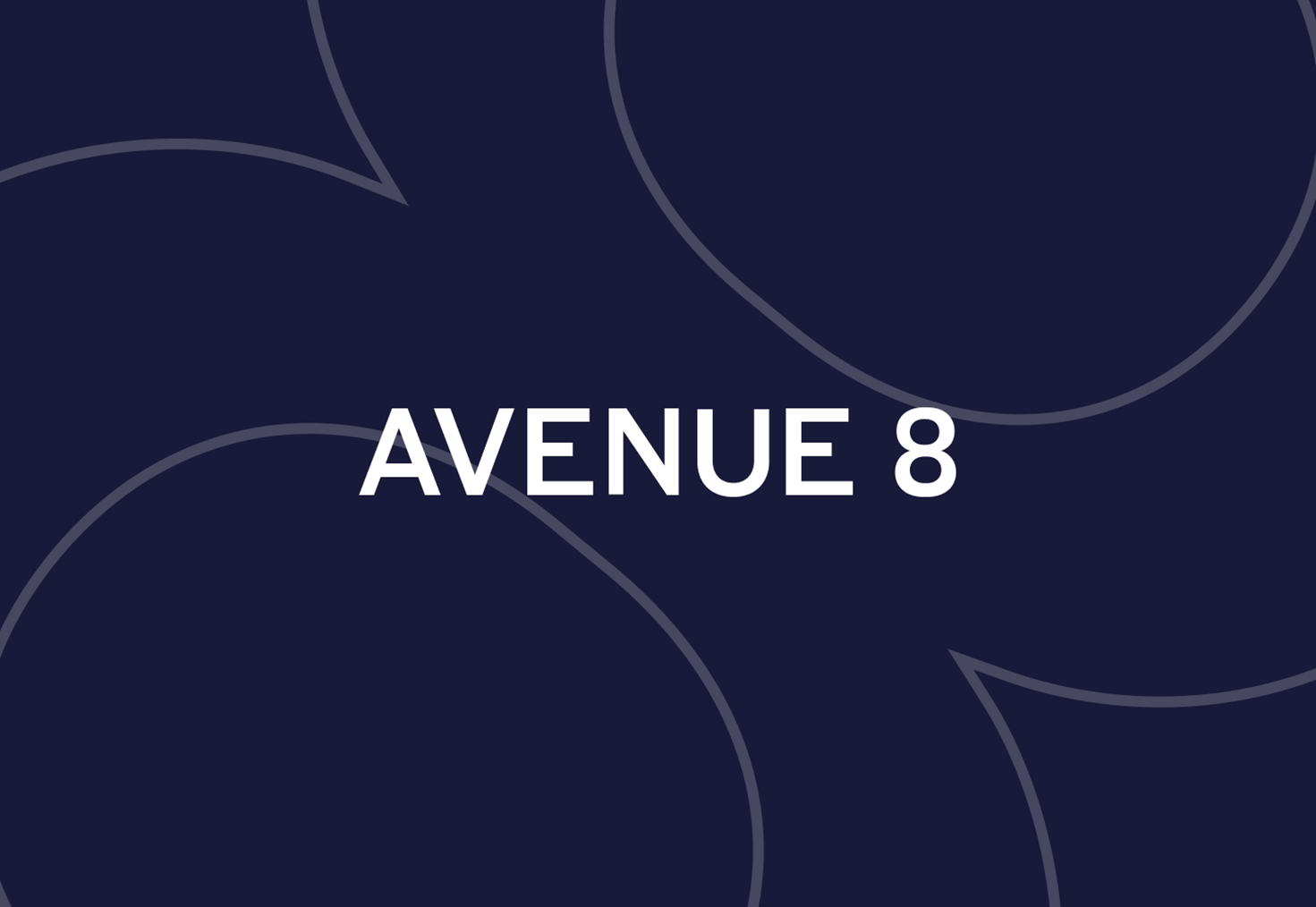This is an abbreviated case study.
Avenue8 is a residential real-estate brokerage based in San Francisco. The company hired its first agent a week before the U.S. went into lockdown, yet by 2021, was flourishing, with nearly 100 agents. That year, they raised $14 million in funding to expand to Miami and New York. Avenue8 wanted to build a program that rewards agents for making sales. While the program would be a cost for Avenue8, it would incentivize users to refer new agents to join, generating more revenue in the long-run. Co-Founder Michael Martin hired Stratus Data to determine a policy which optimizes the cost/revenue ratio.
To solve the problem, Stratus ran Monte Carlo simulations, which model different realities and assign probabilities to their outcomes. The team ran thousands of simulations varying different parameters like number of agents, referral rates, incentive structures, and more to determine which policies were optimal to use. Normally, the cost/revenue ratio would be calculated using the average of agent sales: a fixed single value. Monte Carlo simulations are more sophisticated, drawing values from probability distributions to mimic various realistic scenarios, where nothing is fixed. They allow leadership to account for risk in the decision-making process.

The above sample histograms simulate two possible reward programs. The Cost/Revenue Ratio for Reward Program A is visibly more variable, which means its results could range from being exceptional to being abysmal. Reward Program B, on the other hand, is very consistent; it is likely to produce dependable, cost effective results. Given this information, a more risk-averse business may prefer Reward Program B, while a less risk-averse business chooses Reward Program A, which has the potential to perform better, but with low probability.
Ultimately, Stratus Data’s Monte Carlo simulation gave Avenue8 the power to evaluate various possible scenarios by considering their potentials and risks, and use them to make the best decision possible.
–
Send us a message to learn how your company can run simulations to optimize its processes.
